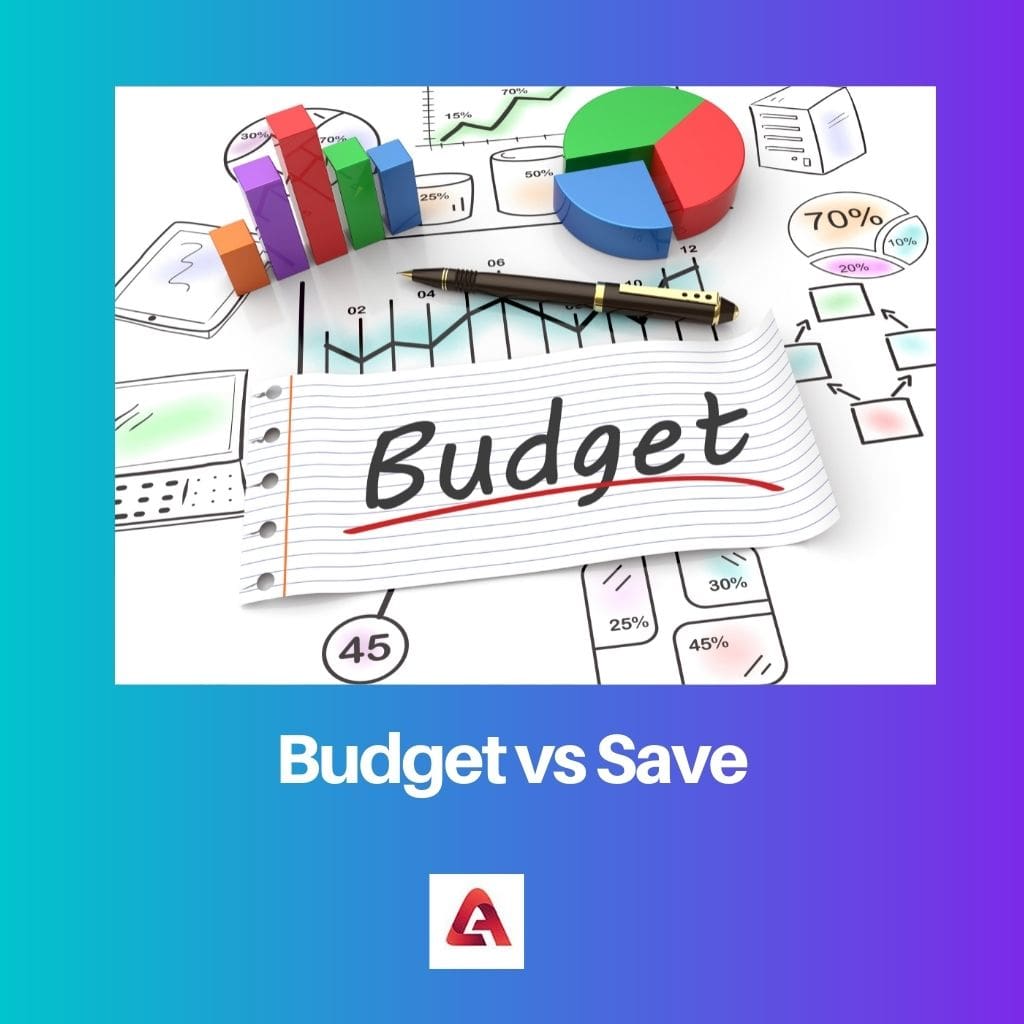Budget and savings are a part of microeconomics and our daily economic lives. Both terms help us keep an account of expenditure, receipts, revenue generation, and other important economic practices.
It makes us aware of our economic needs. However they may sound similar, but they are not.
Key Takeaways
- Budgeting refers to creating a financial plan that allocates income and resources to various expenses and savings goals. At the same time, saving is setting aside money for future use or investments.
- A budget helps individuals and organizations manage their finances, prioritize spending, and avoid overspending, while saving allows for accumulating wealth, emergency funds, or resources for specific goals.
- Both budgeting and saving are crucial aspects of personal finance and financial management, promoting responsible money management and long-term financial stability.
Budget vs Save
A budget is a financial plan that outlines an organization’s expected income and expenses for a given period, which help organizations manage their finances and ensure that they do not overspend. Saving refers to the practice of setting aside a portion of one’s income or resources for future use.

A budget is a financial plan for a definite period. It is a way of balancing income, spending, and financial targets for a while. It has two main components: Receipts and Expenditures.
For example, a household budget will include the entire expenses and plans for the household. Thus, a budget is a plan to utilize the money in a well-organized system.
Save is the amount of money that has to be kept aside for further use or an income that will not be used for immediate consumption.
It is just consuming less in the present while saving more for the future. Save can be national, private, or public, depending on the stakeholders planning it.
For example, people save money for their after-retirement plans, holiday trips, and medical emergencies.
Comparison Table
| Parameters of Comparison | Budget | Save |
|---|---|---|
| Meaning | Budget is the estimated amount of money planned for further use. | The amount of money that is kept aside from the total budget for future uses is called save. |
| Part of | The budget does not include save. | Save is a part of the budget. |
| Kind of tool | A spending tool. | A security tool. |
| Time | It is for a specific. | It can be for days, months, and years. |
| Purpose | It acts as the guiding force for overall spending and providing financial stability. | Save gives us a kind of insurance for any financial emergency. |
What is Budget?
The word budget is derived from the Old French word bougette, which means a small leather purse.
A budget is a financial statement including revenue, expenses, sales, assets, liabilities, and costs for a certain period. It is compiled and can be revised whenever the need arises to do it.
The Budget can be prepared for a person, a group of people, a business, a government, a company, or any organization that makes money.
The term budget was first used in the pamphlet The Budget Opened by William Pulteney, where it was used to describe and criticize the government’s fiscal policy on tobacco and wine.
The process of compiling a financial budget is known as budgeting.
Three types of budgets are as follows:
- When the amount of expenses is equal to the revenues, it is called a Balanced budget.
- When the amount of receipts is more than the expenditure, it is known as the Surplus budget.
- A deficit budget is when the expenditure is more than the number of receipts.
A Budget can be created by identifying their monthly income and monthly expenses.
A budget analyst is a professional who evaluates budget proposals to prevent any misconduct.

What is Save?
Save is the portion of one’s assets that are kept aside for future uses. This asset is in monetary terms.
The process of saving an amount or the result of the saved amount is known as saving.
Save can be done through various methods. Keeping some cash aside; pension account; deposit account; investment in buying profitable assets like stocks, property; regular deposits, money markets, and certificate deposits.
The Regular deposit helps people with regular income to deposit a fixed amount of money every month.
The money market helps people to get easy access to their money.
A certificate of deposit holds the deposit until the time of maturity.
The part of income that has been saved is known as the average propensity to save. Marginal propensity to save is the portion of an increase in income not used in spending but used in saving.
Save not only allows financial security for the future but is also an assurance in any emergency that might happen in the future. But only if it is deposited into a financial mediator such as a bank.
For an ordinary person, the act of saving shows the preservation of a sum of money for further use.

Main Differences Between Budget and Save
- Budget is the estimated amount of money for efficient management and use of financial resources, whereas save is the amount of money kept aside for emergencies.
- Budget can’t be included in saving while saving is a part of the budget.
- The budget is a spending and management tool, while saving is an increment and security tool.
- The budget is prepared for a specific period, whereas saving can be for days, months, and years, depending on the money required to save.
- The budget provides a structured way of planning the expenses and receives to smoothly facilitate future goals while saving gives financial assurance in any financial emergency.

References
- https://www.jstor.org/stable/2111078
- https://www.sciencedirect.com/science/article/abs/pii/S1573447188010137
